Green water is caused by the presence of phytoplankton or algae. There are many species of algae, some are suspended, single-cell organisms while others are filamentous or form "strings". Neither type is noted for directly creating health problems for fish but cause problems with water clarity and the overall appearance of the pond. As a result many persons attempt to eliminate the algae by a variety of methods. A few of the methods that have been used for both suspended algae and string algae are listed below in no particular order of preference. Regardless of the approach you may find that you ultimately must deal with reducing the nutrients that fuel the algae growth cycle. Norm Meck has written an excellent article regarding green water and algae control. You can access this article by entering [ "green water" "norm meck" myths facts theories sequel] exactly as shown within the square brackets into your favorite search engine.
1. Barley straw: Doses of barley straw (tied in a net bag and suspended in the pool, waterfall, etc.) have been reported to be successful for suspended algae when using 4-6 oz./1000 gallons. The use of dosages that are double what is typically called for (around 1/2-1 pound per 1000 gallons) is supposedly adequate for string algae. This may take a week to several weeks to work depending on the water temperature.
2. Some people add one pint of 3% hydrogen peroxide per 1000 gallons. This is said to not have any significant impact on plants or fish and is reported to work well on both suspended and string algae. The only potential problem is that if you have massive amounts of string algae you may create a very large oxygen demand so physically remove as much as possible before trying this method - this caution cannot be over emphasized. It may be necessary to have an aerator ready to put in the water or, for small ponds, it might be better to remove some of the water and the fish to a temporary holding tank until the dissolved oxygen returns to safe levels. Adding hydrogen peroxide, while effective in removing algae, will essentially result in re-dissolving the nutrients which contributed to the algae growth in the first place.
3. Provide 60% or greater coverage to minimize light availability. While this has been one of the recommended approaches for some years there is some evidence (see algae web-article by Norm Meck) that indicates that this might not work effectively.
4. Upgrade your filtration system to help remove nutrients. Several people on this and other sites have commented that Trickling Towers (TT) seem to eliminate algae (both suspended and string varieties).
5. Physical removal for string algae. Get a toilet bowl brush, straighten it out and strap it onto a pole. Then wind the string algae up like spaghetti. This is an effective method for small amounts of string algae and for small to moderate sized ponds. The removal of the algae from the pond will also serve to remove the nutrients that originally created the algae growth.
6. Ultraviolet lights have been used in-line for removing suspended algae but do not appear to work for removing string algae.
7. An additional help to control the growth of algae is to add snails to your pond although if you have large fish they may eat the snails. Depending on your climate and whether you plan to take your fish in for the winter you can also add algae-eating fish. Tadpoles are very effective algae-consumers so do not remove any frog or toad egg masses from you pond - they will produce thousands of little scavengers.
And of course...
8. There are probably a dozen or more concoctions out there sold to solve all of your algae problems. Some people will swear by these remedies while others will swear at them. You should not attempt to use any of the copper-based algacides unless you are very sure of your pond volume and you know exactly what you are doing. The hesitancy with the copper-based solutions is that they are not too forgiving if you overdose - you could kill your plants as well as the fish with a slight miscalculation.
Ronaye, Steve and David

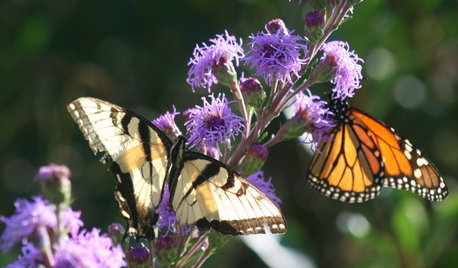




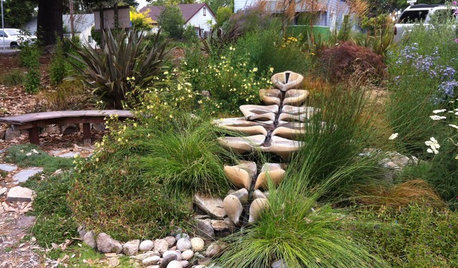
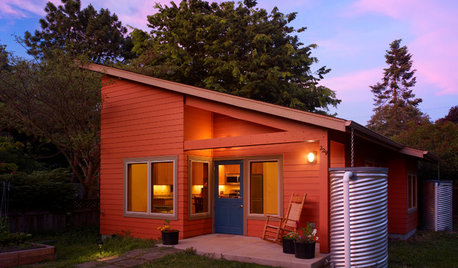
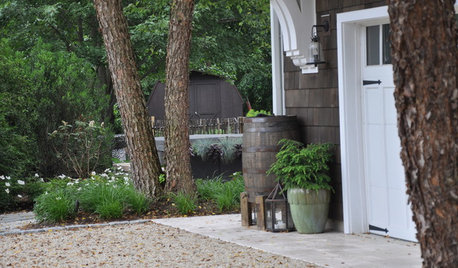
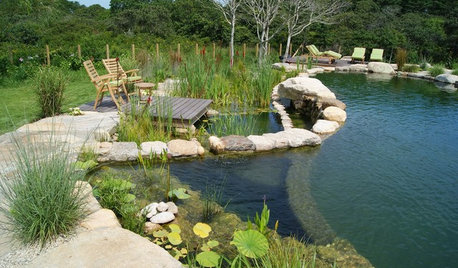



Related Discussions
What about fresh water algae
Q
algae/not green water
Q
Water hyacinth roots covered in string algae
Q
A little Algae/UV info
Q